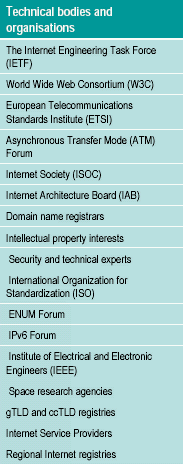ICANN has just announced two vacancies on ALAC: Esther Dyson and I are both stepping back from the committee. As far as I'm concerned, the reason for stepping back at this point is that I'm busy enough with other obligations, and that I'm finding it increasingly difficult to spend the necessary amount of time and attention on the committee's work.
I believe that the committee is facing three key challenges at this point.
First, policy work needs even more attention than it has had so far. Yes, we have been able to get involved with just about every GNSO policy process that was initiated over the past two years. But ALAC needs to devote more of its collective attention to these processes. And ALAC must, ultimately, be given more formal influence on policy decisions made.
Second, ALAC needs to get its "at-large structures" and "RALOs" up to speed, so future vacancies of initial members can be filled by elections, as opposed to the present ad-hoc process involving ALAC and the Board. I'm increasingly skeptical about using RALOs as instruments for policy input, though: ICANN issues -- while they can have quite a bit of impact on individual Internet users -- are often rated as low priorities by potential ALSs, when compared to, say, the copyright outrage of the day. At the same time, these issues can be rather complex, and require quite a bit of time and effort to cut through. Ultimately, I believe that the model of having a bunch of dedicated people serve on an advisory committee and do the policy work, with the at-large structures providing accountability, is the way to go.
Third, ALAC needs to become more open. While ALSs may not be able to spend the collective attention needed on ICANN topics, individuals who do follow these issues appear occasionally. ALAC must be able to get these people involved, and ALAC must be able to bring these people together with the "at-large structures."
There is another challenge that ALAC has to deal with: The legacy of the at-large elections in 2000. For many people, ALAC looks like a poor replacement to having prestigious board seats and global elections. In a way, that's true. But look at the policy-making reality: Board members rarely intervene with actual policy issues (new TLDs being the notable exception); when a consensus policy arrives on the board's table, that's usually in the end of a long and complex (and often frustrating) negotiating process. ALAC provides the opportunity to get involved with these negotiations.
If you are interested in serving on ALAC, want to make sure individual Internet users' voice is heared in ICANN's policy decisions, and are from North America or Europe (there are no vacancies for other regions at this point), please let the committee know at <committee(at)alac.icann.org>.
To those colleagues who continue to serve on the committee (and to new volunteers entering it), I wish good luck, and much success. It has been a pleasure and a privilege to work with you guys.
 Ross Rader
Ross Rader 
